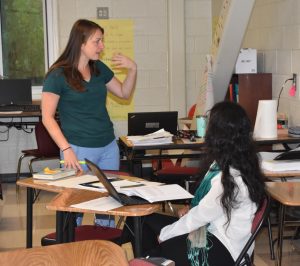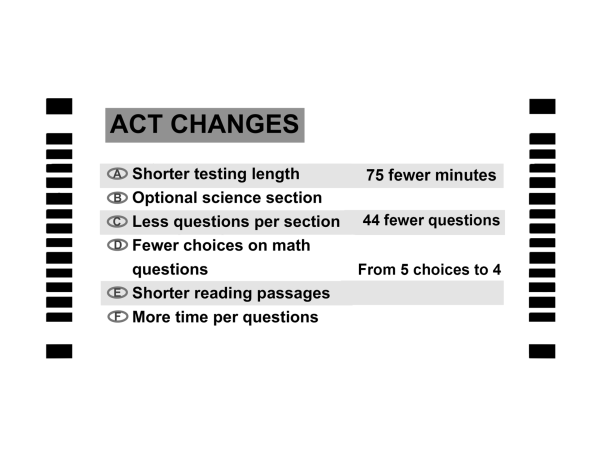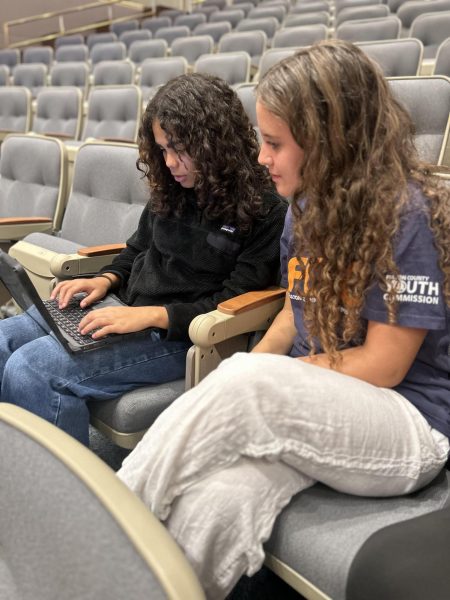Grady teacher helps immigrants obtain citizenship
#Here to stay: This mural at the Latin American Association is a design by Yehimi Cambron, an Atlanta based artist and DACA advocate. Cambron uses her platform to promote immigrant rights.
Every year, over a million immigrants come to the United States with hopeful eyes and packed bags in search of the American Dream. However, there’s one major obstacle that can halt this ambition: citizenship.
When Spanish teacher Aquiles Loero came to America in 2010 from Venezuela, he knew he wanted to help out the Hispanic community. When he got the opportunity to teach Citizenship and Naturalization classes at the Latin American Association, he jumped at the chance.
“I did not hesitate to learn more about the program and how to better help and serve the community with this important class,” Loero said.
In these classes, Loero teaches immigrants from all walks of life about how to pass the United States Citizenship test, which is no easy feat.
According to U.S. Citizenship and Immigration Services (USCIS), an immigrant has to be a legal, permanent resident for five years before applying for citizenship. In addition to this, they must pass two tests: an English reading and writing test and a U.S. Civics test. In the classes, Lorero teaches immigrants to study 100 questions based on U.S government and history, but they will only be tested on 10 random questions.
“There’s a lack of confidence, knowledge and information that prevents immigrants from becoming citizens,” Loero said. “After the class, they feel more confident knowing that there is not anything wrong about being from a different place and that there’s nothing wrong about desiring to become a U.S. citizen.”
Giving immigrants confidence and a place of security is an important aspect of the citizenship classes for Loero. While helping immigrants learn American government and culture, he also wants them to take a look at the bigger picture of their journey to obtain citizenship.
“The United States’ history is full of beautiful and memorable stories like theirs; therefore, they need to understand that the path taken about going through the naturalization process is the right thing to do,” Loero said.
Loero finds importance in the fact that everyone’s background and experiences help shape the country that we know today, no matter what country you’re from.
The Grady community is made up of many immigrants, from countries, including Japan, Saint Lucia, the Netherlands, India and Mexico. Having students, staff and parents from all over the world shape Grady into the melting pot it is.
According to the Migration Policy Institute, 21 percent of school-age children in Georgia have a least one foreign-born parent. Junior Emma Uppelschoten’s father immigrated to the United States from The Netherlands.
“I think my dad’s immigration experience is definitely one of the less criminalized immigration experiences because he came from a European country,” Uppelschoten said. “However, I know for people of color, the immigration experience can be really hard.”
Uppelschoten wishes that more people understood that not all immigrants of color have bad intentions and are criminals. Immigration is not an easy task, which comes with many hard decisions and conflicts.
Sophomore Bhuvan Saraswat came to America from India five years ago.
“I believe Grady does support immigrant students because, from my personal experience, people at Grady just talk to us normally,” he says. “They do treat everybody equally.”
However, Saraswat also recognizes the hardships and struggles that come with being an immigrant. Traveling internationally is harder for him and his family.
Citizenship is a topic that has much significance to Loero. He believes the path to citizenship is not easy, but it’s important that everyone tries.
“Immigrants who look at the United States as their new home should become citizens. It is important that they can participate in democracy,” Loero said. “It is important for the country that people who come to live here permanently see and feel the country as part of their lives, as their home.”
Loero firmly believes in the saying “knowledge is power” and intends on educating and empowering immigrants.
“This class is what would help immigrants,” Loero said. “This helps them to complete one last step of their immigration status and for some, their American dream fulfilled.”












